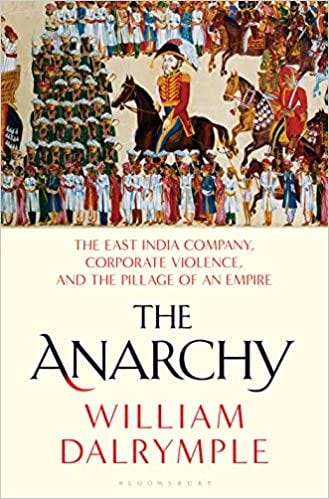I’m Paul Musgrave, a political scientist and writer. This is Systematic Hatreds, my newsletter about my thoughts regarding politics and the study of politics. The newsletter takes its title from a line in The Education of Henry Adams:
Politics, as a practice, whatever its professions, had always been the systematic organization of hatreds.
This week, we’re talking about how undergraduates should approach their senior thesis—their first steps into systematically understanding hatreds, I suppose.
The Ten Thesis Suggestions
I was invited to share some advice about how to write a senior thesis with students at UMass this past week, and here, suitably polished, are my notes for students. There are ten points, but they are not commandments, merely suggestions.
1. Understand. Writing a thesis is an exciting opportunity! And people often start off with a weird idea about what they should do, because they are not understanding what a thesis is. This is a research project that is different from the “research papers” that you’ve done in the past. Those were about summarizing, and maybe critiquing, others’ work. A thesis is less about looking at what other people have written and more about what you can contribute. This isn’t a time for you to write airy thoughts about grand ideas: it’s time to buckle down, learn the nuts and bolts of how to conduct research, and produce work that can be worthwhile—even citable. It is, in other words, a chance for you to master some disciplinary tools and habits of thought so that you can understand a topic in the same way that your advisers and other disciplined thinkers do.
2. Puzzle. A great thesis, like a great dissertation or scholarly article, isn’t defined most of all by its rigor but by the interest and importance of the puzzle that’s driving your inquiry, which is what justifies the rigor. The topic you’re investigating should result from curiosity about the world and why it works as it does—a mystery for you to unravel and then present the solution to the world. The answer shouldn’t be obvious or already discovered: if it is, then you’ve chosen poorly.
3. Focus. This is about doing original research in a structured and valuable manner. You should work on continually focusing on how you can ever more finely craft your intervention. Let’s say you’re interested in housing policy. You can focus this a lot of ways: class, gender, spatial allocation, levels of government, etc. Having made the first decision about how to focus your work, you should then focus again. This has two advantages: it makes your project ever more feasible to complete within the stiff boundaries laid out for it (you only have a year, more or less), and it also makes your contribution ever more precise and usable.
4. Connect. Connect with faculty and connect with your other sources. You should work to find faculty members who can support you—this is a sine qua non for everything else. Finding and deepening a relationship with your faculty mentor will prove educational in itself. Separately, you should work to ensure that what you’re doing connects with your other coursework in some ways (and plan your coursework to begin supporting your endeavor—learn new tools, background information, etc). Make these connections plain—and also be strategic when you are choosing your courses and projects in your second and third years as you build toward the thesis.

5. Be honest. Be honest with yourself and with others about what you want. Are you trying to build skills that will help you get a job? Are you trying to learn more that will help you in your activism? Do you want to see if research is really for you? Do you really think this faculty member is a good fit for you?
6. Prepare. Write, revise, and bottom-line your idea before you approach a faculty member. Know what faculty members do and don’t do, and adjust your pitches (And topics!) accordingly. Every faculty member has a Web site, if not two or three; their writing and their curriculum vitae (CV) are available for you to examine so you can make the best possible connections between your projects and their interests. Separately, you should also prepare your pitch to the faculty member so that you can point to a clearly-defined project and proposal when it comes time to ask them for assistance. (Here, it’s even okay to work with others to refine what you’ll be pitching.)
7. Read. It’s a good time for you to read more, and more deeply. Reading hones your interests and gives you models for how to undertake research. Talk to librarians—really!—about what you should read and about how you can find it. This is the time to understand the difference between the slop returned by a Google search and the gems returned by a Google Scholar search, and how to fine-tune your search strategies—and your reading skills—so that you can master as much and as deeply as you can.
8. Notice. Conducting any sort of large-scale research project requires a mixture of discipline and intentional noticing. You want to notice when other authors have found a flaw in your argument; you want to notice when they have failed to find a gap in their own work; you want to notice how assumptions and silences have shaped a field; and you want to notice how the world doesn’t always yield the results you expect. Cultivating your capacity to notice should be a priority for you—especially because it can help you pivot to a more successful strategy if, or rather when, your original idea runs into flaws.
9. Plan. This is a huge commitment of time and energy. Accept and plan for that. Think about this in terms of 250-500 hours’ worth of commitment—that’s a lot, but it’s also doable if you’re doing this a little at a time, not trying to squeeze it into the 168 hours of the week before your draft is due. Treat an independent study course like any other class, with a dedicated time and room for you to head to to make sure that you are making forward progress every week.
10. Dream. Allow yourself to realize that by this point in your life you have more potential than the world sees. You can master so many skills so quickly right now, and you can also get so much deeper into subjects than you think. This is the best time for you to do that.
What I’m Reading
This week, I’ve been reading William Dalrymple’s The Anarchy: The East India Company, Corporate Violence, and the Pillage of an Empire.
The East India Company and its legacy remain much with us, even down to the second Trump impeachment featuring a long disquisition on the justness (or not) of the impeachment of EIC manager Warren Hastings by Edmund Burke in the 1780s. In this lengthy and fascinating book, William Dalrymple explores a question I’ve long had: how did the British conquer India? Dalrymple demonstrates that the question hinges on three false premises: that the British conquered India, that the British conquered India, and that the British conquered India. It was the East India Company, not Great Britain, who waged war and extracted profits; the conquest was a mixture of coercion, subjugation, and cooption of Indian polities; and the India that was brought under foreign rule was a continent in the midst of political turmoil. By whatever name, the subordination of India to rulers in London was a crucial event in world history, much dismissed in U.S. schoolrooms (I believe it merited a paragraph in my high school textbooks), and Dalrymple does much to make this bewildering tale comprehensible. Along the way, Dalrymple demonstrates that Hastings has been calumnied—that he was one of the “better” EIC managers from the standpoint of the Indians, and that his foes rather than his conduct brought about his impeachment.



